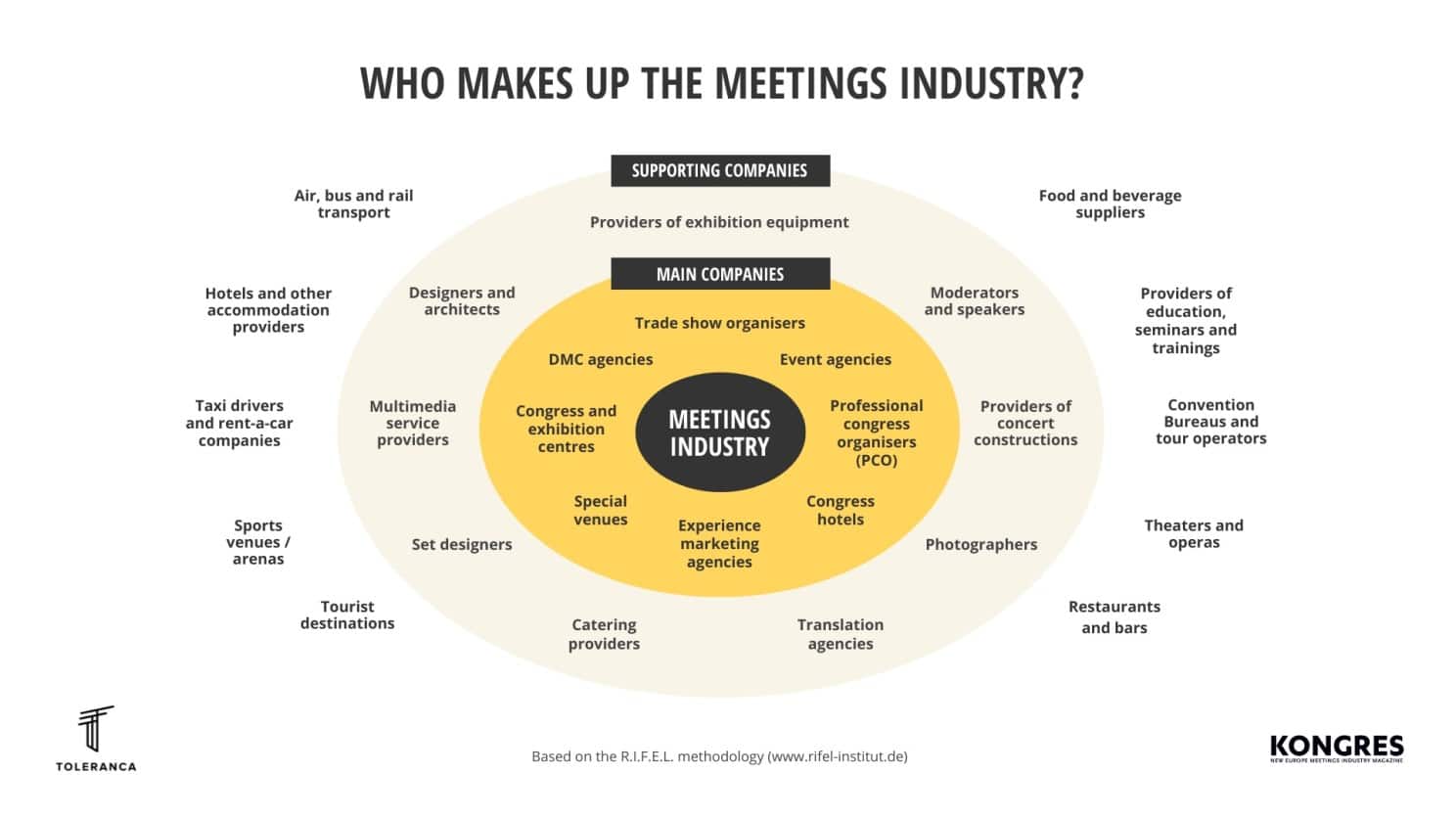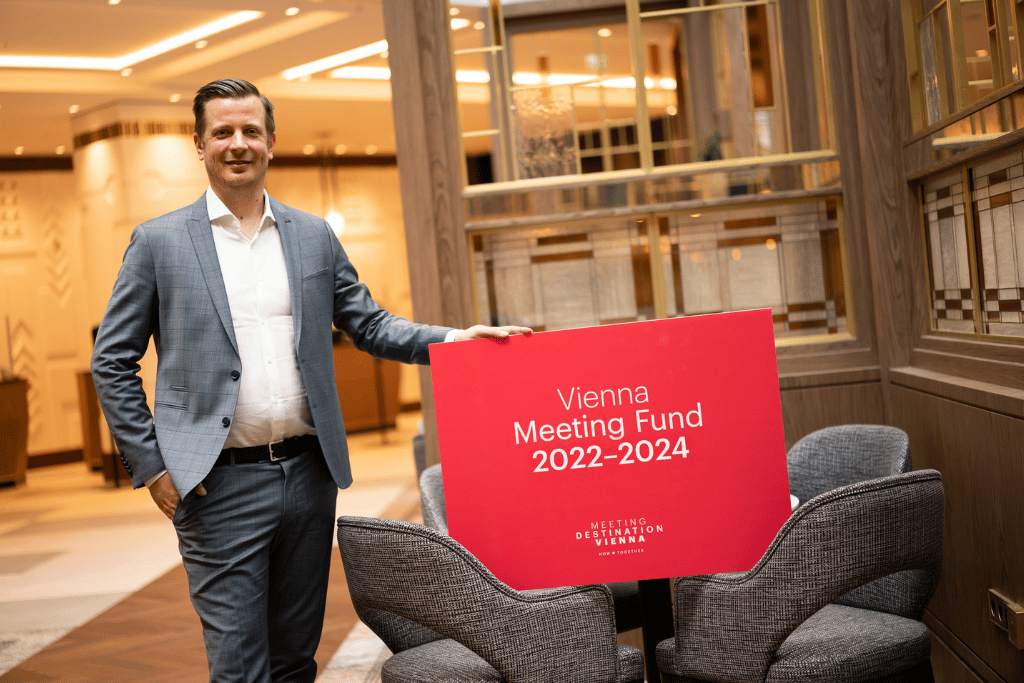Destination parasites
Parasites often surface in dire times, when their reserves are limited, and take the form of event attendees. They are most vocal at events and were seen in great numbers during the coronavirus crisis. Later, they quieted down and enjoyed the accomplishments of those who actually promoted and marketed destinations.

1. an animal or plant that lives on another animal or plant of a different type and feeds from it.
2. a person who is lazy and lives by other people working, giving them money, etc.
Parasites often claim the following:
- There is no need for cooperation at a destination, as events will come to the city or tourist destination eventually.
- The government should promote a destination, as we finance the government by paying taxes.
- If I pay a commission to agencies for promotion, why should I partake in any promotional initiative?
- We do not need any convention bureau or other destination management body, as our prominence is already strong enough.
- We are members of an international chain that ensures apt promotion and sales.
Claims like this continue endlessly. Parasites usually substantiate them by uttering some neoliberal mantras, such as the market works on its own and functions as a perpetuum mobile. Alternatively, parasites refer to statistical data taken out of context, which is hard to counterargument. They usually conclude their tirade by mentioning the importance of our industry and how they wish to host more events at their destination.
In my experience, companies operating in the inner circle of the meetings industry are fundamental to any destination. These organisations include exhibition and convention centres, meeting hotels, professional congress organisers, event agencies, trade show organisers, DMC agencies, special venues, experience marketing agencies and catering service providers. According to recent studies, such companies generate at least 80% of their income by organising or hosting events. In other companies related to a destination, the percentage of income generated by event organising is substantially lower. Ljubljana Tourism’s research about the expenditure of congress guests, conducted in 2019, just before the COVID-19 outbreak, illustrates that perfectly. A graph made according to the German methodology R.I.F.E.L. beautifully encapsulates the complexity of the meetings industry.

The results have shown that the most illustrious and successful destinations have thought-out organisational structures. To name an exemplary destination: Vienna Convention Bureau boasts by far the biggest budget in the region and employs 21 experts who work solely on bidding for association conferences and corporate events and promoting Vienna. If you ask anyone in Vienna, they will say their convention bureau is the catalyst for developing the entire meetings industry. Vienna functions as a world-class football team and has been using its potential to the fullest. On the other end of the spectrum, there is Bucharest, where the market dictates what happens. In recent years, the city has seen several landmark investments and new hotels opening alongside superb congress halls. Unfortunately, no one in Bucharest connects the providers, promotion is non-existent, and no development project is in sight. Consequently, Vienna ended on top of ICCA’s Destination Performance Index, with 162 events, while Bucharest ended on the 78th position, with 26 events. Incomparably smaller destinations with less development potential, including Ljubljana, Dubrovnik, Vilnius and Tallinn, all surpassed it in the East Europe region.
We researched further and analysed the largest destinations in the XL category. Among 42 destinations in this category, nine of them do not have a convention bureau (21%), and an additional five of them (12%) have a convention bureau, but their operations ground to a halt during COVID-19. The destinations without a convention bureau or apt destination management ranked at the bottom of our list.
The success of a destination thus relies on the heart and soul of the industry – on companies supporting it. The greater the inclusivity of such companies in local destination coalitions, the greater the success of a destination. Another intriguing fact cropped up in our research in January 2023. Answered by 265 European event organisers, the survey aimed to discover which information sources they trust most. The respondents ranked personal contacts first (8.6 out of 10) and destination organisations second (7.9 out of 10).

Convention bureaus must be independent
Foreign event organisers find it quintessential that a destination convention bureau functions as an independent and neutral organisation. As trivial as it sounds, cooperation, inter-organisational connections and “coopetition” are crucial, as we are hopelessly co-dependant on one another in the meetings industry.
A while ago, I wrote about a dilemma – who is the congress chicken, and who is the congress egg? I wanted to know which existed first – destinations or destination management. Moreover, I aimed to discern who can blow their own horn for developing a local destination – a DMC, PCO, convention bureau or teambuilding agency. Perhaps it can be a local restaurant owner who ensures the bellies of attendees are full or the airline transporting participants to the destination. I concluded that everyone who has the guts to create new events, conferences, and seminars in any form can take pride in their achievement. That is why I believe all stakeholders in the meetings industry are event organisers of the year (local and international). The easiest way to approach them is by contacting credible destination organisations – convention bureaus. Although congress parasites see convention bureaus only as cash cows, their role is entirely different if they aim to be socially responsible and contribute to a sustainable future. Convention bureaus must understand event organisers and meet their goals and expectations through dialogue. That is one of the roles of convention bureaus and destination management companies, which parasites refuse to accept or understand.
Parasites in the meetings industry are tricky to recognise, as they often mask themselves behind convoluted and ambiguous terms. Yet, you can always spot one by one of the most common symptoms: they give nothing in return, share nothing with others, create nothing and look the other way when the industry faces dire times. The most effective substance against parasites is transparent communication. That includes measuring the results of the entire meetings industry. Perhaps we can start by picking between two questions: All for one, one for themself? or All for one, one for all?
Editorial by Gorazd Čad














